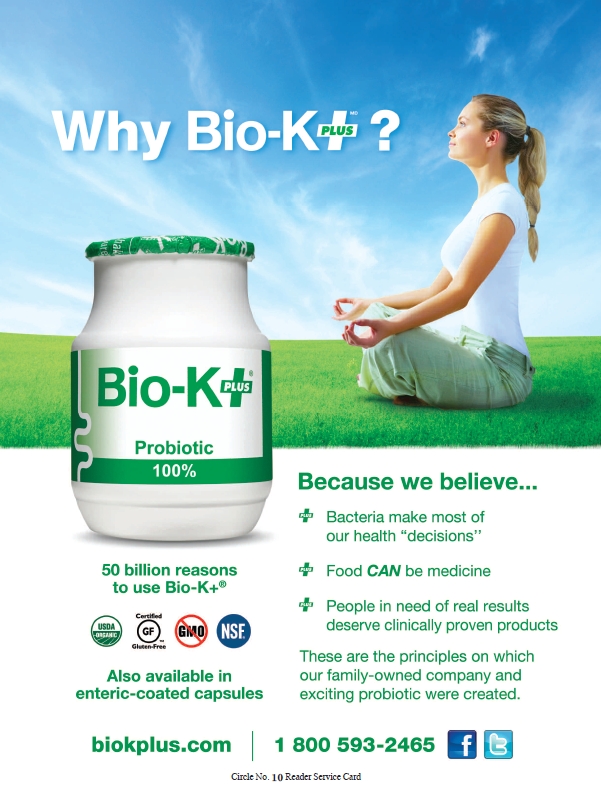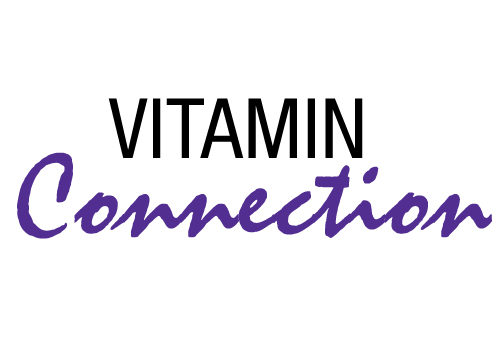In our book, The Missing Wellness Factors—EPA and DHA, Jørn Dyerberg, M.D., Dr. Med. Sc., and I discuss how EPA and DHA have been shown to reduce the risk of certain cancers having an inflammatory component (1). We discussed the 2010 review by Helena Gleissman, Ph.D., and coworkers of the Karolinska Institute in Sweden that associated the consumption of omega-3 fatty acids with decreased risk of cancers of the breast, prostate, colon and kidneys (2). We also described the supportive animal study by Kelavkar et al. (3). While we did not specifically discuss prostate cancer in detail, this cancer does seem to have an inflammatory component and early studies support the premise that EPA and DHA can be protective.
Recently, a report claimed that omega-3s are associated with increased risk of prostate cancer (4). The report does not show cause and effect, but only association. Since the body of scientific evidence about the benefits of fish oil shows this to be unlikely, it is not surprising that Dr. Dyerberg and I received many requests for clarification of what the new report does and does not show about fish oil benefits. Most readers know that Dr. Dyerberg and Dr. H.O. Bang are the original pioneers in the benefits of fish oil and human health research.
Professor Dyerberg, often referred to as “the father of omega-3 oils,” has made several discoveries that elucidate many of the health benefits of fish oils, which are rich in omega-3s. Dr. Dyerberg made five scientific expeditions to Northwest Greenland in the 1970s examining the association between fish oil intake and coronary heart diseases in Eskimos. Dr. Dyerberg, who is Danish, hypothesized that the rarity of coronary heart disease among the Inuit could be due to the omega-3 fatty acids in their diet consisting largely of seal and cold-water oily fish. Together with his fellow researchers, he went on to elucidate the  unique physiological effects of these fatty acids. His research opened new fields leading to thousands of health studies by many. His own research encompasses more than 350 scientific publications primarily concerning blood lipids, atherosclerosis, the blood coagulation system, omega-3 polyunsaturated fatty acids, trans-fatty acids and prostaglandins.
unique physiological effects of these fatty acids. His research opened new fields leading to thousands of health studies by many. His own research encompasses more than 350 scientific publications primarily concerning blood lipids, atherosclerosis, the blood coagulation system, omega-3 polyunsaturated fatty acids, trans-fatty acids and prostaglandins.
In 2007, Dr. Dyerberg was honored by the American Heart Association in “Recognition of Outstanding Scientific Contribution for the Advancement of Heart Health Worldwide.” In 2008, he received the American Dietetic Association Foundation’s Edna and Robert Langholtz International Nutrition Award.
Passwater: There has been much concern regarding the mid-July report stating that higher plasma omega-3 fatty acid levels were associated with increased risk for developing prostate cancer.
Dyerberg: In this study, plasma phospholipid omega-3 levels were measured in 834 men who eventually developed prostate cancer, and 1,393 men who did not. The authors reported that men in the highest quartile of omega-3 had a 43–71% increased risk for prostate cancer. This is the same conclusion that the same group reached in 2011 in a study in another cohort (5).
Passwater: I have several issues with this report, and I know you do as well. At the top of my list of issues is that the data were not properly adjusted for risk factors, the blood levels of omega-3s were relatively low and it is not known how long the men had these blood levels of omega-3s. What are your main problems with the report?
Dyerberg: Yes, there are several issues in the paper that raise questions to the authors’ results and their interpretation. First of all, the reported EPA+DHA level in the plasma phospholipids in the study was 3.62% in the “no-cancer” control group, 3.66% in the “total cancer” group, 3.67% in the “low-grade cancer” group and 3.74% in the “high-grade cancer” group. These differences between cases and controls are very small, being within the normal variation. The lowest quartile would correspond to an  Omega-3 Index of <3.2% and the highest to an Index of >4.8%. These values are obviously low. So, to conclude that regular consumption of two oily fish meals per week or taking fish oil supplements, both of which would result in an Omega-3 Index above the observed range, would increase risk for prostate cancer is extrapolating beyond the data.
Omega-3 Index of <3.2% and the highest to an Index of >4.8%. These values are obviously low. So, to conclude that regular consumption of two oily fish meals per week or taking fish oil supplements, both of which would result in an Omega-3 Index above the observed range, would increase risk for prostate cancer is extrapolating beyond the data.
Passwater: I find it interesting that the “total cancer” result was lower than either of its components.
Dyerberg: There might be an explanation we do not see. Further, the study did not test the question of whether giving fish oil supplements or eating more oily fish increased prostate cancer risk; it looked only at omega-3 blood levels at study start, and not at study end, which are determined by acute intake (e.g., a fish meal the evening before blood sampling!), other dietary factors, metabolism and genetics.
Passwater: What does the existing body of science tell us?
Dyerberg: Well, the authors failed to deal in detail with the results from the literature in their report. The same team reported previously that the use of fish oil supplements was not associated with any increased risk for prostate cancer. Some 1,602 incident invasive prostate cancers were obtained from the Surveillance, Epidemiology, and End Results registry, finding no associations with the use of fish oil (6). A 2010 meta-analysis of fish consumption and prostate cancer reported a reduction in late-stage or fatal cancer among cohort studies, but no overall relationship between prostate cancer and fish intake (7).
Terry et al. in 2001 reported higher fish intake was associated with lower risk for prostate cancer incidence and death, and Leitzmann et al. in 2004 reported that EPA and DHA intakes may reduce the risk of total and advanced prostate cancer in a cohort of 47,866 U.S. men aged 40–75 years with no cancer history and followed for 14 years (8, 9). In contrast, they found that increased dietary intakes of  ALA may increase the risk of advanced prostate cancer. The same group studying the same cohort had in 2003 found that each additional daily intake of 0.5 g of marine fatty acid from food was associated with a 24% decreased risk of metastatic cancer (10). Higher intakes of canned, preserved fish were reported to be associated with reduced risk for prostate cancer (11). Epstein et al. found that a higher omega-3 fatty acid intake predicted better survival for men who already had prostate cancer (12), and increased fish intake was associated with a 63% reduction in risk for aggressive prostate cancer in a case-control study by Fradet et al. (13).
ALA may increase the risk of advanced prostate cancer. The same group studying the same cohort had in 2003 found that each additional daily intake of 0.5 g of marine fatty acid from food was associated with a 24% decreased risk of metastatic cancer (10). Higher intakes of canned, preserved fish were reported to be associated with reduced risk for prostate cancer (11). Epstein et al. found that a higher omega-3 fatty acid intake predicted better survival for men who already had prostate cancer (12), and increased fish intake was associated with a 63% reduction in risk for aggressive prostate cancer in a case-control study by Fradet et al. (13).
In a study from Örebro County, Sweden including 35,239 males in which there were 1,602 incident invasive prostate cancers, it was found that those with the highest omega-3 DHA and total marine fatty acid intakes were 40% less likely to die from prostate cancer (12). So, there is actually considerable evidence favoring an increase in fish intake for prostate cancer risk reduction!
Passwater: Another issue not dealt with in the paper is comparing prostate cancer rates in countries with high and low fish intake and consequently high and low intake of marine omega-3 fatty acids.
Dyerberg: If the postulation made in the new report were true, then prostate cancer would be rampant in any country with high seafood consumption (e.g., Japan, Greenland) and conversely, low level consumption should be protective. Clearly this is not the case. The World Foundation of Urology states: “Prostate cancer incidence is really high in North America and Northern Europe (e.g., 63 per 100,000 white men and 102 per 100,000 Afro-Americans in the United States), but very low in Asia (e.g., 10 out of 100,000 men in Japan)” (www.prostatecancerprevention.net/index.php?p=prostate-cancer).
The Japanese typically eat about eight times more omega-3 fatty acids than Americans do and their blood omega-3 fatty acid levels are twice as high. Their prostate cancer risk would be much higher if the paper’s risk calculations were true, but the opposite is obviously the case.
Passwater: How about the Eskimo population that you studied. I remember that you studied heart disease and arthritis in the Eskimos; did you study prostate cancer in the Eskimo as well?
Dyerberg: I did not, but in a paper entitled, “Inuit Are Protected Against Prostate Cancer,“ the authors concluded the following from autopsy findings in Greenland Inuits: “Our results suggest that in situ carcinoma is rare among Inuit and that their traditional diet, which is rich in omega-3 polyunsaturated fatty acids and selenium, may be an important protective factor” (14).
Passwater: The new report includes a limited attempt at a meta-analysis of the previous literature.
Dyerberg: The meta-analysis of earlier studies carried out at the end of the paper actually only includes three previous studies, one of which is by the lead author (Brasky, 2011). Another by Park et al. (2009) used the same nested case control design, while the remaining study by Chavarro et al. (2007) showed strong benefits of fish oil and marine omega-3 fatty acids for reducing the risk of prostate cancer.
Passwater: How would you summarize this new report?
Dyerberg: In summary, the work of Brasky et al. does add to the evidence for the relationship between omega-3 fatty acids and prostate cancer, which taken as a whole—including animal studies which are  typically positive—support a neutral, if not beneficial effect of fish oil in prostate cancer risk. In this respect it should be remembered that high omega-3 levels are associated with lower rates of death from any cause (15, 16). The risk benefits of fish oils clearly remains favorable.
typically positive—support a neutral, if not beneficial effect of fish oil in prostate cancer risk. In this respect it should be remembered that high omega-3 levels are associated with lower rates of death from any cause (15, 16). The risk benefits of fish oils clearly remains favorable.
Passwater: Dr. Dyerberg, thank you once again for your extensive research on EPA and DHA, and for taking the time to chat with our readers about this new study. WF
Editor's Note:
For additional information about how fish oil benefits the body, please see Dr. Passwater's three-part interview with Dr. Dyerberg that was published in June 2010, July 2010 and August 2010.
Dr. Richard Passwater is the author of more than 45 books and 500 articles on nutrition. Dr. Passwater has been WholeFoods Magazine’s science editor and author of this column since 1984. More information is available on his Web site, www.drpasswater.com.
References
1. J. Dyerberg and R.A. Passwater, The Missing Wellness Factors—EPA and DHA (Basic Health Publications, Inc., Laguna Beach, CA, 2012).
2. H. Gleissman, J.I. Johnson and P. Kogner, “Omega-3 Fatty Acids in Cancer: The Protectors of Good and the Killers of Evil?” Exp. Cell Res. 316 (8), 1365–1373 (2010).
3. U.P. Kelavkar, et al., “Prostate Tumor Growth and Recurrence can be Modulated by the Omega-6: Omega-3 Ratio in Diet: Athymic Mouse Xenograft Model Simulating Radical Prostatectomy,” Neoplasia 8 (2), 112–124 (2006).
4. T.M. Brasky, et al., “Plasma Phospholipid Fatty Acids and Prostate Cancer Risk in the SELECT Trial,” J. Natl. Cancer Inst. (2013); doi: 10.1093/jnci/djt174; First published online: July 10, 2013.
5. T.M. Brasky, et al., “Serum Phospholipid Fatty Acids and Prostate Cancer Risk: Results from the Prostate Cancer Prevention Trial,” Am. J. Epidemiol. 173 (12), 1429–1439 (2011)
6. T.M. Brasky, et al., “Specialty Supplements and Prostate Cancer Risk in the Vitamins and Lifestyle (VITAL) Cohort,” Nutr. Cancer 63 (4), 573–582 (2011).
7. K.M. Szymanski, D.C. Wheeler and L.A. Mucci, “Fish Consumption and Prostate Cancer Risk: A Review and Meta-Analysis,” Am. J. Clin. Nutr. 92, 1223–1233 (2010).
8. P. Terry, et al., “Fatty Fish Consumption and Risk of Prostate Cancer,” Lancet 357, 1764–1766 (2001).
9. M.F. Leitzmann, et al., “Dietary Intake of n-3 and n-6 Fatty Acids and the Risk of Prostate Cancer,” Am. J. Clin. Nutr. 80, 204–216 (2004).
10. K. Augustsson, et al., “A Prospective Study of Intake of Fish and Marine Fatty Acids and Prostate Cancer,” Cancer Epidemiol. Biomarkers Prev. 12 (1), 64–67 (2003).
11. K. Mina, L. Fritschi and K.C. Johnson, “An Inverse Association Between Preserved Fish and Prostate Cancer: Results From a Population-Based Case-Control Study in Canada,” Nutrition and Cancer 60, 222–226 (2008).
12. M.M. Epstein, et al., “Dietary Fatty Acid Intake and Prostate Cancer Survival in Orebro County, Sweden,” Amer. J. Epidemiol. 176, 240–252 (2012).
13. V. Fradet, et al., “Dietary Omega-3 Fatty Acids, Cyclooxygenase-2 Genetic Variation, and Aggressive Prostate Cancer Risk,” Clin. Cancer Res. 15, 2559–2566 (2009).
14. E. Dewailly, et al., “Inuit Are Protected Against Prostate Cancer,” Cancer Epidemiol. Biomarkers Prev. 12 (9), 926–927 (2003).
15. D. Mozaffarian, et al., “Plasma Phospholipid Long-Chain Omega-3 Fatty Acids and Total and Cause-Specific Mortality in Older Adults: A Cohort Study,” Ann. Inter. Med. 158 (7), 515–525 (2013).
16. J.V. Pottala, et al., “Blood Eicosapentaenoic and Docosahexaenoic Acids Predict All-Cause Mortality in Patients With Stable Coronary Heart Disease: The Heart and Soul Study,” Circ. Cardiovasc. Qual. Outcomes 3 (4), 406–412 (2010).
Published in WholeFoods Magazine, September 2013










